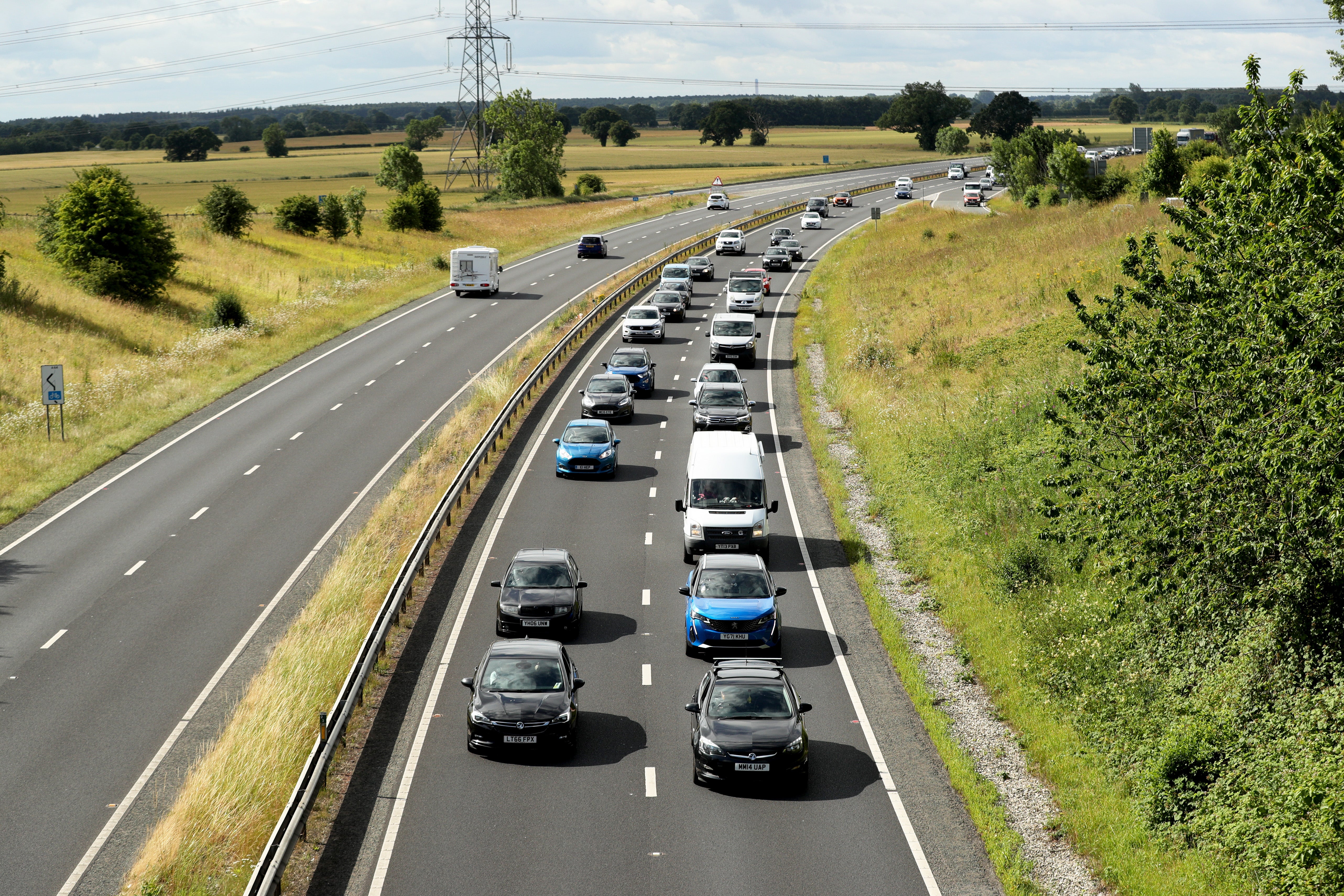As fuel protests grow, how can the government tackle a summer of discontent?
Fairly or not, such a mood of decay and national malaise is bound to reflect badly on the governing party, writes Sean O’Grady


Motorway go-slows earlier this week, organised by the awkwardly named Fuel Price Stand Against Tax, didn’t have much of an immediate effect – the price of a litre remains stubbornly high – but they did prove one important point: even the most draconian laws, and the most agitated of home secretaries (Priti Patel), are powerless in the face of mass protest on this scale.
Police have a groaning buffet of measures to choose from under the new Police, Crime, Sentencing and Courts Act, as well as other repressive powers passed under New Labour and Conservative administrations over the past quarter-century. They have CCTV and ANPR on an unprecedented scale, and even some new recruits. But if thousands of van, car and HGV drivers really want to clog the M4, they will. If they are all given fines and subsequently choose to go to court, the judicial system will collapse. It was just such a show of mass disobedience that crippled the poll tax in 1990.
With no sign of the prices of petrol and diesel subsiding, and little indication yet of a Treasury cave-in, these protests – which, broadly speaking, are unlawful – are bound to grow. History suggests they have a high chance of eventual success. The fuel protests of 2000, for example, involved rolling road blocks and blockades outside oil refineries, and caused mass panic in the country – and, more to the point, in Tony Blair’s cabinet. Most alarmingly, Labour fell behind the Tories in the opinion polls for the first time in more than a decade.
Back in 2000, the price of fuel had risen to a seemingly ruinous 80p or so a litre, and Labour had, in effect, continued with the Major government’s “fuel duty escalator”, for both environmental and fiscal reasons (though Gordon Brown as chancellor had already begun to moderate its impact). There was panic-buying, and the ability of the emergency services to function came under threat, as did food deliveries. Over some weeks, the protests waxed and waned, but by November, Brown was ready with a package of measures to cut the cost of driving.
Since then there have been both intermittent threats and modest disruption, and panic-buying has usually had more of an impact than direct action. The added factor in 2022 is the prospect of simultaneous fuel-price protests and rail strikes, especially now that RMT members at CrossCountry and East Midlands Trains have voted for industrial action. It’s perfectly possible that these disruptions might be exacerbated by Extinction Rebellion and Insulate Britain trying to stop the traffic as well, albeit for diametrically opposed reasons.
This alliance of convenience – or coalition of chaos – could very quickly paralyse the UK’s transport network and leave the government in an impossible position: giving in to the fuel-price protesters would simply anger the green protesters, and vice versa.
The coming months will see much more in the way of disruption, including industrial action affecting hospitals, schools, courts, local council services, airports, and many other sectors. Aside from that, we already have airlines cancelling flights, delays in handling applications for passports and driving licences, energy bills rocketing along with food and mortgage rates... and a government that looks fairly weak and helpless in the face of the challenges.
If we’re really unlucky, a new, more dangerous Covid variant might start to circulate, which will lead to more staffing shortages in the NHS, schools, and across the economy. Spain, ominously, has reintroduced compulsory PCR tests and vaccine “passports” for British travellers. Meanwhile, here there has been no return to the old precautions, such as masks, self-isolation rules, testing and booster jabs, leaving the British public largely unprotected from another Covid wave.
Fairly or not, such a mood of decay and national malaise is bound to reflect badly on the governing party, just as it did in 1974, 1979, and (to a lesser extent) 1990 and 2010. If a government looks exhausted and out of control of events – leaving aside the crippling political turmoil in which No 10 is currently immersed – it tends to lose power soon after. A change of leader, if not party, would naturally follow such a sense of crisis, especially as Boris Johnson is already so unpopular. It might not take much, now, to push the public over the edge.



Join our commenting forum
Join thought-provoking conversations, follow other Independent readers and see their replies
0Comments